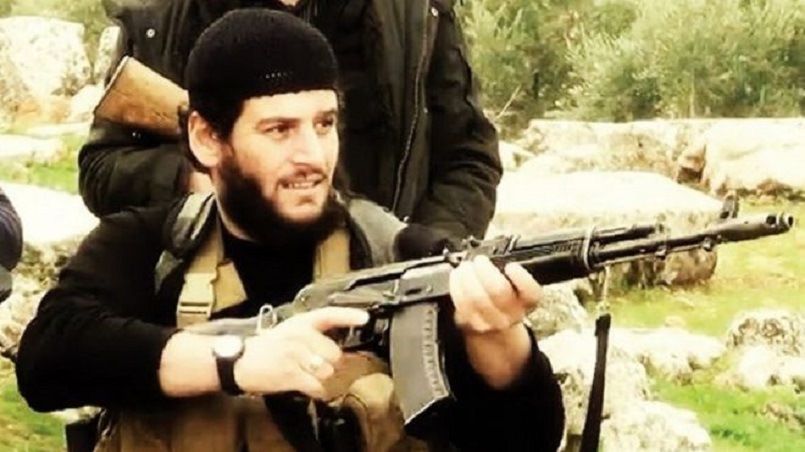
One of the longest-serving and most prominent leaders of so-called Islamic State (IS) has been killed in Syria, IS-affiliated media say.
In a statement distributed by the group's supporters, Amaq News Agency reported that Abu Muhammad al-Adnani died in the province of Aleppo.
He was "martyred while surveying the operations to repel the military campaigns against Aleppo", it said.
Adnani was known for his calls for lone-wolf attacksin the West.
One of the group's founder members, he is also said to have masterminded attacks in Europe and elsewhere.
The statement did not say how Adnani, who had a US bounty of $5m (£3.82m) on his head, was killed.
But a US defence official said US-led coalition forces had carried out an air strike on Tuesday in Syria targeting a "senior leader" from IS in al-Bab in Aleppo province.
"We are still assessing the results of the operation at this time," he added.
A further blow - by BBC security correspondent Frank Gardner
For a proscribed terrorist organisation that has long placed propaganda at the centre of its global strategy, the death of IS's chief spokesman is a significant blow.
For the past two years Abu Muhammad al-Adnani had been making strident calls for attacks on the citizens of Western and other countries, notably France. His call to intensify attacks on IS's enemies this summer resulted in one of the bloodiest months of Ramadan in recent memory.
As with all terrorist organisations, he is easily replaceable. But for IS, Adnani possessed a valuable blend of effective oratory and military experience. Amongst IS followers he was well known and widely listened to.
His reported death is a further blow to a movement that is now under enormous pressure on all sides.
Adnani's reported death comes at a time when IS is suffering military reverses in both Syria and Iraq.
He was last heard in an audio message in May urging Muslims to carry out attacks in the West.
Adnani was born Taha Sobhi Falaha in the northern Syrian town of Banash in 1977.
US officials say he was one of the first foreign fighters to oppose the presence of US-led forces in Iraq after the 2003 invasion.
